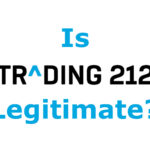Self Invested Personal Pensions come with many benefits from tax relief to the ability to access earlier than other retirement options. In this post we explore the benefits to help you decide whether you should get a SIPP.
What is a SIPP?
A SIPP is a Self Invested Personal Pension. It’s a tax efficient way to grow savings for retirement and gives you control over your money. You decide exactly when and how much you put in. You can decide what you invest in to make sure you grow your retirement fund the way you want.
Access to a SIPP is available from age 57, 11 years before the state pension age.
SIPPs are a great way to increase your overall pension pot and can provide a highly flexible way to control your taxable income. If you get a SIPP, you can make the most of your adjusted net income to ensure you receive benefits such as the tax free childcare allowance.
Reason 1: Greater Control Over Your Investments
In a typical workplace pension you may get no control over your investments. For a lot of people this may not be of any concern, however in some cases it might be a huge problem.
Investment Return
There is always a risk reward trade off with investing. Investments can go up as well as down. Often though, default pensions are very safe. For shorter investing horizons this is no bad thing. If you have a longer time frame before taking your pension then you may want to take more risk earlier on to grow your pension pot.
High Fees
All pension providers make money through fees. For a SIPP, you’ll know both the costs of the platform you are using and the cost of the underlying investments. For workplace pensions these fees can be hidden away and are often significantly higher. Remember whilst investment returns compound, fees do also.
Ethical Investing
Within a SIPP, you can pick investments that match your ethics. Most workplace pensions will offer limited choice on funds that you may not support. If want to avoid investing in gambling or tobacco for example then a SIPP provides you that option.
Reason 2: Tax Benefits
SIPPs are highly tax efficient.
Government Top Up
If you are a UK tax payer then the government will add a top-up to your SIPP every time you invest. As a basic rate, higher rate, or additional rate tax payer you’ll automatically get a 25% bonus added to your investment.
That means if you invest £4,000, you’ll get £5,000 in your SIPP to invest. This is automatic. For most providers you’ll receive this 4-8 weeks after your deposit.
Tax Rebate
In addition to the bonus from the government, you can also reclaim taxes paid on pension contributions.
If you are a higher rate tax payer you can reclaim another 20% of the amount deposited. As an additional rate taxpayer you can reclaim 25%.
To do this you either need to submit a tax return, or in most cases you can simply send a letter to HMRC with details of your SIPP contributions and ask for a rebate. If your SIPP payments are regular, they’ll also offer to adjust your tax code for you. You’ll still need to confirm your SIPP contributions with them each year but it means you aren’t always out of pocket!
Overall Tax Relief
When you get a SIPP, you will benefit from tax relief.
| Tax relief on £8,000 contribution to a SIPP | Basic Rate | Higher Rate | Additional Rate |
| Government bonus on £8,000 | £2,000 | £2,000 | £2,000 |
| Total reclaimed by tax return | £0 | £2,000 | £2,500 |
| Total Tax Relief on £8,000 | 20% : £2,000 | 40% : £4,000 | 45% : £4,500 |
| Total amount paid for a £10,000 contribution | £8,000 | £6,000 | £5,500 |
Income Benefits
Contributions to a pension, including a SIPP will modify your net adjusted income. For example if your income is over the allowance for tax free child care, you can contribute to a SIPP to lower your net adjusted income and hence qualify for the allowance.
Reason 3: Flexibility
SIPPs are extremely flexible, both in terms of contributions and when withdrawing.
Access to Pension
If you get a SIPP, you can access it from the age of 57. This is 11 years before the state pension age of 68. You don’t have to access it this early of course, but it gives you the option.
You can also access your pension how you want. As with any pension, you may take 25% as a tax free cash lump sum. You can use this to pay off the rest of your mortgage when you retire or celebrate your retirement with a well deserved holiday.
You will be taxed when you access the rest of your pension. Just like your earnings from work, this will be taxed using the normal income tax bands.
When accessing your SIPP you can choose how and when to access the funds. You can take money out whenever you like or buy an annuity to guarantee an income.
Paying In
You can pay into a SIPP whenever you want. Payments are capped at your income, or £60,000, whichever is lower. The flexibility around paying in means you can pay in regularly but also adjust depending on life situations.
Should I Get a SIPP?
A SIPP forms part of my retirement spread bet. My workplace pension is tied to state pension age. I can access this up to 5 years early however that comes at a cost.
Once I hit state pension age at 68, I think I’ll be relatively comfortable with my workplace pension and the state pension. The trouble is getting there.
I’m also concerned that this age may move upwards. We’ve already seen pension ages increase in the last few years and given that both state pension and my workplace pension are tied to a government controlled date it’s a bit of a worry. I want to have control over my retirement destiny!
For me, a SIPP provides a highly tax efficient way to bridge the gap between 57, the SIPP access age and 68, the age I can access my workplace pension. I invest in global index funds and automatically invest every month. It’s simple and hopefully gives me flexibility in future.
How to Get a SIPP?
To get a SIPP, simple follow these steps:
- Find a provider and open an account
- Examples include Invest Engine, AJ Bell, Hargreaves Lansdown
- Deposit funds
- Providers will have varying methods for depositing funds including bank transfers ad debit cards. Make sure to check the frees associated with each method to pick the right option for you
- Select and buy an investment
- We’ve talked about how to pick the perfect ETF previously. Many SIPP providers will have varying charges depending on what you buy, so decide whether you want a ETF or a fund.
- Set up regular investing (optional)
- Most providers will allow regular deposits to be automated which saves you hassle
- Check back for your bonus from the government
- Invest your bonus
- Claim your tax relief from HMRC
- Let HMRC know you are making regular payments, or request a tax rebate at the end of each tax year
SIPP Recommendations
If you are looking for a SIPP provider then I recommend Invest Engine.
I don’t have a SIPP with them, as I started my SIPP before Invest Engine released theirs. Invest Engine offer a very cost effective SIPP with a 0.15% platform fee – amongst the lowest on the market, free trades – the cheapest on the market, and a good selection of Exchange Traded Funds.
Invest Engine are FCA regulated and we’ve previously answered the question of Invest Engine is too good to be true.
Before making any financial decisions please do your own research or consult with a qualified financial advisor. Information provided on this blog is not financial advice.








